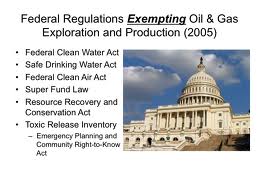Pattern of complaints arises near fracking, by S. Thomas Bond
Charleston Gazette, Op-Ed, July 24, 2012: One of the most remarkable features of today’s news is the disparity between the shale gas drilling industry claims and the claims of people and organizations where they drill.
Drillers say no harm is done and great economic benefits result. Certainly, a vast building project is involved, the investment is in the billions, with money coming from all over the world. A map showing the shale areas of the United States where natural gas is believed to be recoverable is impressive. Politicians in some big shale states are ecstatic about what they have been told.
At the same time, newspapers and TV stations carry numerous accounts of complaints of injury by people who live in those areas when shale drilling takes place. No matter where it is done, it is the same constellation of damages. Most prominently these include destruction of aquifers, contamination of surface waters, and air pollution resulting in health claims.
There also are reports of road damage, sick and dead livestock, soil contamination. Property devaluation figures into these complaints too. The countryside where drilling occurs is abuzz with such stories.
The drilling industry has numerous public relations organizations to counter these claims. They will provide speakers for your meetings, articles to be published wherever possible, and “experts” on demand. Every company has one or more spokesmen primed to answer any question or negate any assertion.
Opposition to shale drilling has produced some 200 Internet sites in the United States and more in a dozen other countries, Canada foremost among them. The diversity of these sites is remarkable. Some want to preserve clean water, some emphasize clean air, some want to exercise political pressure by meetings, some focus on the compounds used in fracking, some on property damage, and a few are displays of aggrieved individuals. My personal favorite of the last category is Harry Boyd’s once-certified organic farm for ginseng in Ohio. Shale drilling has reduced it to an open toxic dump.
So, head to head, why is this? No one is calling anyone a liar — yet. A few days ago, a Wyoming state official took things to a new (low) level when he said, “I really believe greed is driving a lot of this … they’re just looking to get compensated.” Subsequently he offered an apology.
The Oil and Gas Journal has gone so far as to say, “It’s the allegation that drilling and completing wells in gas-bearing shales threaten subsurface supplies of drinking water. If not discredited, repeated falsehoods will coalesce into a political force able to stop the most promising development in generations for U.S. energy supply.”
On the other hand, there is a movement among investors with over a trillion dollars invested to have the industry use more responsible drilling methods.
Are the claims “falsehoods”? Numerous claims have been taken to court. When it looks like the company will lose, such as in the Hallowich case in Pennsylvania, the company settles, paying extra to have the claimants agree to refrain from discussing the terms or amount of the settlement. Some suits are lost.
The industry is stressed. The investment is more than most of us could understand. They picked up a raw technology, never passing through the “scaled up” stage. It went straight from a single proof of concept to full-scale application without the kind or research that should have been done to check for environmental problems. This would have involved testing water and air before drilling, during drilling and after to see what happened.
Since each well has a unique geological setting, this should have been done numerous times. What goes down the well in hydraulic fracturing is known to the petroleum engineers in charge, but to this day what comes back up in the way of drill cuttings and flowback is not public knowledge, and perhaps is not known to the petroleum engineers. The high temperatures and pressures below change solubility of many compounds.
The public health industry is vitally interested. Just as the “Halliburton loophole(s)” helps the industry avoid responsibility for clean air, water and creation of contaminated brownfields, new legislation in Pennsylvania and Ohio seeks to hamstring physicians in their relations with their patients and in interaction with other doctors. The shale drilling industry may just be its own worst enemy.
S. Thomas Bond, of Jane Lew in Lewis County WV, is a retired teacher and an inorganic chemist. He is a member of the Guardians of the West Fork and the Monongahela Area Watersheds Compact.


{ 2 comments… read them below or add one }
I am very interested in hearing more about these issues because I too live in an area where there has been consentrated drilling [Lewis Co. Wv] for many years, I would like to know more about how this could effect my family. I know that it is a much needed energy source, not to mention oil/gas drives our economy but, I also worry about the future of my children and the beautiful land we live. I would hope that there is a level of accountability that is upheld. These outside corporations should appreciate the opportunity they have and in return respect both the local people and our land. This is another reason that all of us from the local area that are involved in the industry must lead by example and see to it that the accountability is there.
Harry Boyd’s farm was NOT polluted by shale drilling or hydraulic fracturing. It was polluted by a piss-poor driller who is in bed with Ohio EPA and who dumped flowback from a conventional vertical well over a hillside on Harry’s farm. This happened BEFORE anyone even thought of shale drilling in Monroe county.